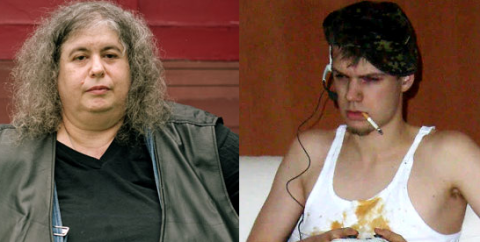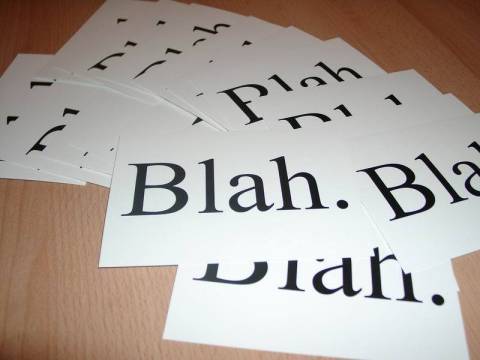Sexism in Video Games- Part 1
By gamer_152 130 Comments
This is a blog that I’ve been holding off on for a while because it’s on a topic that seems to incite a lot of... Well, let’s call it “heated discussion”. None the less, this is something I think deserves to be addressed and I believe we are capable of having a civil discussion about. Sexism in video games is something that’s been observed for a long time, but recently we seem to have seen the debate over it grow rather rapidly, with many of those speaking out against the way women are portrayed in games identifying themselves with the feminist movement. Sadly the debates over sexism in video games are regularly fraught with mistakes, misinterpretations and miscommunications from both sides. All too often it seems that those defending video games against accusations of sexism come away thinking that feminists are all anti-masculine, hyper-politically correct sexists, while those criticising games come away thinking that the gaming community are largely immature, irresponsible douchebags. In both cases each party also has the tendency to come off to the other as stereotypical, ignorant and overly-defensive.
Feminism

As many people seem to be viewing the debate at least in part as “feminism vs. video games”, I feel the most important point to address before I say anything else is the definition of feminism. Many people seem to be under the impression that feminism is a movement concerned with aggressively fighting for women’s rights at any costs and that it holds an inherent hostility towards men. Most definitions of feminism actually state that it is simply a movement in favour of women’s rights and/or women’s equality. That’s quite a broad definition and indeed there do seem to be some very loud, delusional, misinformed and downright sexist individuals within it, but I think we can all agree that the gaming audience has more than its fair share of those too.
Neither gamers, nor feminists should be defined by their most extreme or outspoken members. I think we, as reasonable people, can agree though that the idea of women’s equality at its root is something we can all get behind. Of course I’m sure if more of us entered debates with an open mind and an air of calmness, and if the mass media stopped perpetuating tired stereotypes of both groups we’d also be far better off.
I believe the next most important point is that gamers and feminists are not two entirely separate groups. Some seem to see the criticism of sexism in video games as always or very often being some sort of external attack, when a significant amount of it is actually coming from people within the gaming audience. This kind of criticism can often be heard from women and men to whom the issues matter because they’re the very people consuming this entertainment to begin with. In fact, if you’re making a point about cutting down on sexism in video games then you’re basically adopting a feminist position on it. None the less I think too many vague and invalid points get made in these arguments, so let me start from the top.
Empty Criticism

I find the criticism that a game is sexist alone to be a rather shallow one. “Sexism” is a word which encompasses a lot of different behaviours which affect different groups of people, in different ways, to different degrees. Hypothetically, when someone says a game is sexist that could mean anything from the game overtly and clearly telling people to oppress and abuse a sex, right down to female characters not being able to equip a certain item that males can. “Sexist” has become one of those words with an understandably strong negative stigma attached to it, but this seems to have lead to some people waving the word around expecting the same appalled reaction for everything from the greatest to the most minor differences between the ways the sexes are treated in games. While calling something “sexist” is a good descriptor of the kind of argument you’re levelling against it, it doesn’t tell us anything about whether that thing is legitimately worth worrying about, in what way it’s supposedly damaging, how damaging it is, or how we can begin to fix the problem if there is one. People also aren’t going to be won over by an argument unless you clearly and openly explain the exact problem you’re talking about.
Another rather reactionary word which seems to get thrown around a lot is objectification. While there seem to be people out there with a very different mindset, I don’t think objectification of individual characters is by default the big evil demon it’s set up to be. Plenty of characters in video games are objectified and it’s just not a problem. When we encounter an enemy in an FPS or an NPC in RPG we treat them as objects; they’re just targets, quest-givers, or means to get the items we need. We don’t think about them as human beings with thoughts, emotions, beliefs and views, and yet despite how packed games are with examples of people being treated more or less as objects, it seems it’s only when the sexualisation of female characters comes into play that we hear the term “objectification”. Again, objectification is something that can happen on different scales, to different degrees and to different people.
The blanket use of terms like “sexism” and “objectification” when it comes to video games also ignore that discriminating against real people and doing the same to fictional characters are two very different things. I find it hard to believe this is something that has to be contested, but it seems that some are even under the delusion that the portrayal of mistreatment or inequality of women in a video game is by default to be taken as a general statement about women, or how it is acceptable to treat women. I’ve seen people argue this about games like Grand Theft Auto IV, Batman: Arkham City and others, and I’m amazed it’s a point that some people have ever considered valid.
The Real Problem

There are some out there who seem to believe it is the upmost atrocity that characters like Ivy Valentine or Princess Peach exist and that there would be some sort of ultimate justice in a future where the entertainment industry is entirely devoid of these types of characters, but this is of course complete nonsense and in the case of sexualised female characters I don’t see anything wrong with enjoying their appearance or behaviour on a sexual level. Yes, it’s a simple and short-term thrill but many great things in life and games are.
What’s Wrong With It?
Even back before discussion about sexualised game characters was as big as it is now, I was hearing people giving the rather perplexing argument of “Why put sexualised girls in video games when you can see them elsewhere, like on the internet?”, but why combine any one enjoyable thing with any other enjoyable thing? It creates a more enjoyable end product. I get the feeling that the people making this argument actually have some sort of other gripe that they’re hiding behind this question.
I also hear people saying that it’s just plain weird to derive pleasure from what is basically a collection of pixels on a screen and if that’s your opinion then you’re perfectly entitled to it, but I would like to point out that “weird” is a relative thing. Even when you’re “looking at” someone in real-life what you’re actually seeing is the light emanated by any nearby light source bouncing off of them and the light not absorbed by them reaching your eye, triggering electrical processes in your brain. If you think about anything long enough it all seems a bit weird.
Duder, It’s Over
Anyway, that’s it for this week. As always I’d love to hear your feedback on anything here and thank you for reading.
-Gamer_152